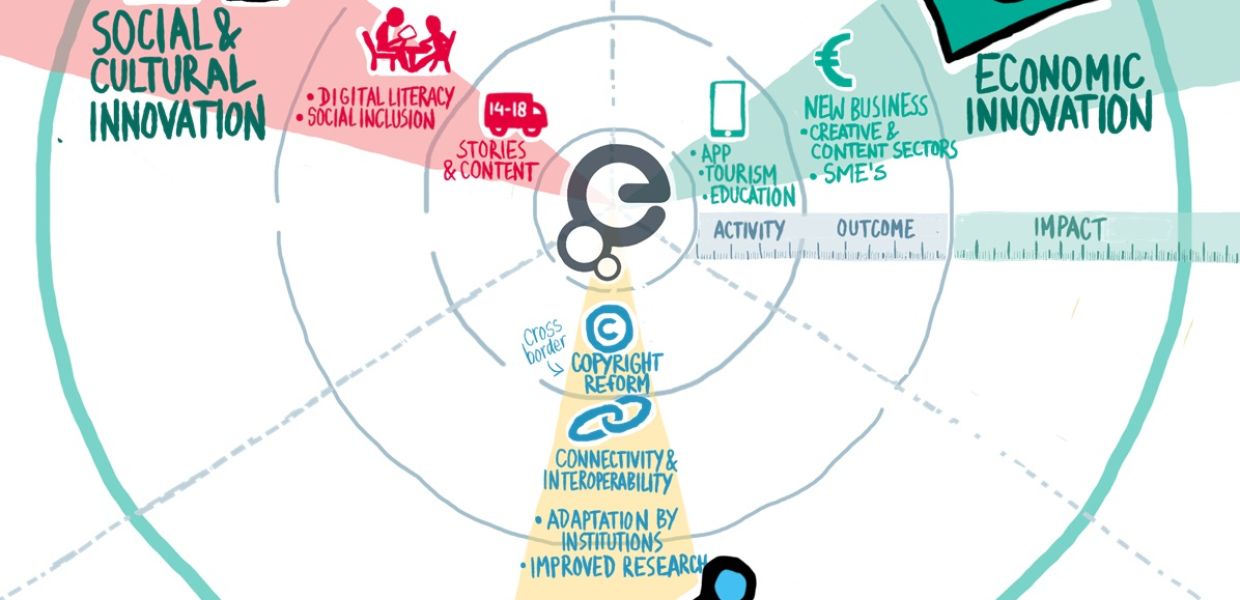Meet the Members Council: Emmanuelle Bermes

Last year, we ran the Meet the Members Council blog series so you could hear directly from each of your elected Members Council representatives, and get to know them a little better. In November, you elected seven further members to this Council, each of whom will introduce themselves via this blog in the coming weeks.
I first got involved in Europeana long ago, when it was still in its infancy. In fact, Europeana as we know it hadn’t yet been established when, in a meeting room in Luxembourg, we talked about interoperability with colleagues who have since become friends. A couple of years later, we dreamt that Europeana wouldn’t be just another portal. Over a beer in a sunny spot in The Hague, we imagined a semantic network of information about people, events, works... that would give meaning to cultural data on the web. That’s how we started working on the Europeana Data Model (EDM).
Then came the time of projects, with their proposal submissions, work packages, deliverables, prototypes and so on. There were so many of them that organising and understanding their relationships became a challenge. Meanwhile the portal grew richer with new features, virtual exhibitions and the aggregation of more and more data from institutions across Europe.
So where are we today? The new version of the portal, Europeana Collections, has just launched. Though we have not yet achieved our original dream, we’ve made huge progress - and the portal, or the Collections site, is only the tip of the iceberg here.
For me, Europeana’s greatest achievement isn’t just the aggregation of all this data (not that I’m saying that was easy!), but the huge boost it gave to the cultural community in Europe regarding the digitization of heritage. Countries or institutions where digitization wasn’t a priority yet began to obtain funding and start projects, and those who had already started shared not only their collections but their know-how and valuable expertise. The efforts were spread across domains - archives, libraries, museums, audiovisual institutions, and created awareness about the importance of interoperability of collections, even if the objects they contain are unique. Europeana also become an influential voice on the importance of open data.

Europeana’s strategy has evolved to move closer to a shared digital infrastructure who serves both professionals from European institutions and the wider public. With Linked Open Data, diverse types of re-use have become as important as the main site itself. The ambition is to share data processing tools, and the means to enrich, transform and preserve data, thus empowering smaller institutions that don’t have the means to do it by themselves.
Finally, Europeana has become a network, and a real community. This community shares its expertise - whether professional, technical or scientific - but also its motivation and involvement in making European culture available to everyone thanks to the digital revolution. Building and leading a community is a difficult and sometimes thankless task, but it also allows ideas to be born, to mature and to progress - even leading to projects and achievements that will transform more than just our own business and communities. Transform the world with culture - that’s Europeana’s aim.
We can’t forget that Europeana grew out of a political idea - it still has the power, thanks to the energy behind it, to influence in favour of cultural policies in the states of Europe. I sincerely believe that, without Europeana, we would not be where we are today in terms of digital access to culture. That’s the main reason I wanted to be part of the Network Association, and why I applied to join the Members Council. Now I’ve been elected, I’m delighted to have the opportunity to take part in the future of Europeana.
A version of this post originally appeared on Emmanuelle's own blog.
